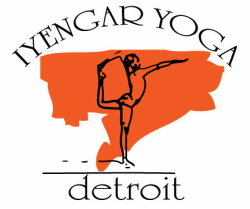- We center the voices and needs of people of color and others pushed to the margins, to collaboratively create paths for healing.
- We view our work through the lens of social justice and decolonization, acknowledging this time and place and the historical and political factors that have shaped it.
- We recognize the effects of trauma and oppression, and we strive to create a safe space that attends to the needs of survivors. We recognize that economic impoverishment is a form of trauma.
- We welcome all abilities and all body types, including but not limited to: people with disabilities (including chronic illness and mental health concerns), elderly people, big-bodied people, queer and transgender people. We also welcome people from refugee and immigrant communities.
- We honor the cultural and historical roots of yoga and Iyengar Yoga, without appropriation. We give credit where credit is due, including monetary dues. We do not profit at the expense of colonized people.
- We honor our teachers and elders while striving to build non-hierarchical structures.
- We practice collective decision-making, deep listening, and taking personal and interpersonal responsibility. We practice giving and receiving constructive feedback to one another.
- We practice both transparency and requests for confidentiality, so that we can build a foundation of trust, openness and honesty in our work together.
- We do this work to lift up and politicize the role of healing and spiritual practice as a critical part of the new, more equitable community and world we are building.
- We recognize these principles as living and evolving, open to ongoing discussion and revision.
*We attribute the Healing Justice framework to Cara Page and Kindred Southern Healing Justice Collective, and we are indebted to this work, developed since 2005, especially by Black queer healers and organizers.
Iyengar Yoga Detroit Collective - 2750 Yemans Ave, Hamtramck, MI 48212 - 313.528 9493
Contact us!
Copyright 2016 - All rights reserved
Contact us!
Copyright 2016 - All rights reserved
